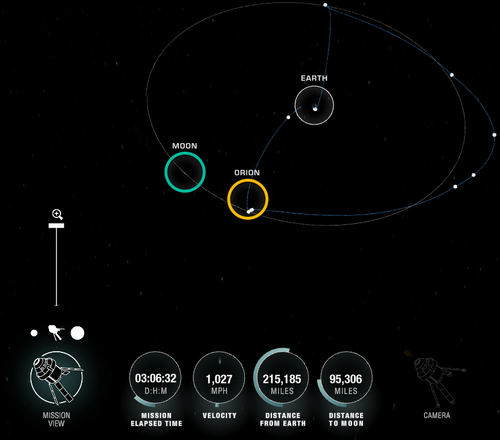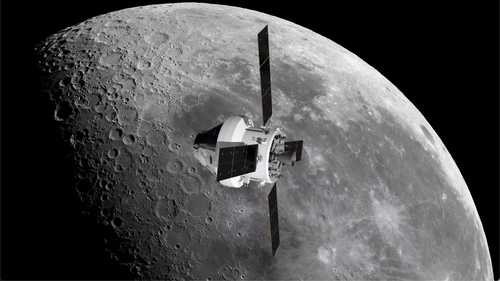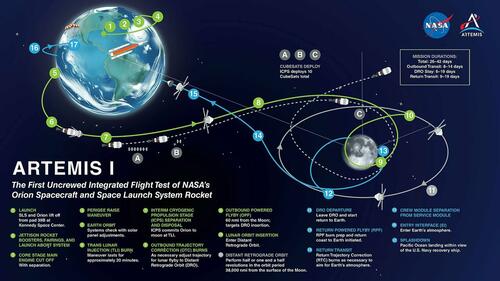NASA Prepares Spacecraft For First "Powered Flyby Burn" Around Moon
NASA's Artemis 1 Orion capsule is three days into the lunar mission. The uncrewed spacecraft cruises at 1,000 mph and is 215,000 miles from Earth. It's about 95,000 miles from the Moon and will make a very close powered flyby burn on Monday.
"Orion's entry into the lunar sphere of influence will make the Moon, instead of Earth, the main gravitational force acting on the spacecraft," the space agency wrote in a press release.
NASA continued: "Flight controllers will conduct an outbound powered flyby burn to harness the force from the Moon's gravity, accelerate the spacecraft, and direct it toward a distant retrograde orbit beyond the Moon. During the outbound powered flyby, Orion will make its closest approach – approximately 80 miles – above to the lunar surface."
Four days later, the second powered flyby burn will "insert Orion into distant retrograde orbit, where it will remain for about a week to test spacecraft systems," NASA said.
Additional flyby details will be provided on Saturday following a meeting with NASA officials.
"Right now, we're looking good, and we're ready to go continue executing," Artemis 1 Flight Director Jeff Radigan said during Friday's briefing.
NASA has laid out a detailed map of the Artemis 1 mission.
Less than 12 hours into the flight after Orion took off from Launch Pad 39B at the space agency's Kennedy Space Center in Florida on Wednesday, the first view of Earth from the spacecraft was released to the public.
As @NASA_Orion begins the #Artemis I mission to the Moon, the spacecraft captured these stunning views of our home planet. pic.twitter.com/Pzk3PDt7sd
— NASA Artemis (@NASAArtemis) November 16, 2022
If Artemis 1 mission is successful, which would end with the Orion capsule splashing down in the Pacific Ocean on Dec. 11, then Artemis 2 and 3 flights will follow. Artemis 2 is scheduled sometime in 2024. That mission will propel four astronauts around the Moon. Then in 2025, Artemis 3 could include a return of humans back to the lunar surface.
https://ift.tt/HNkaGE5
from ZeroHedge News https://ift.tt/HNkaGE5
via IFTTT







0 comments
Post a Comment